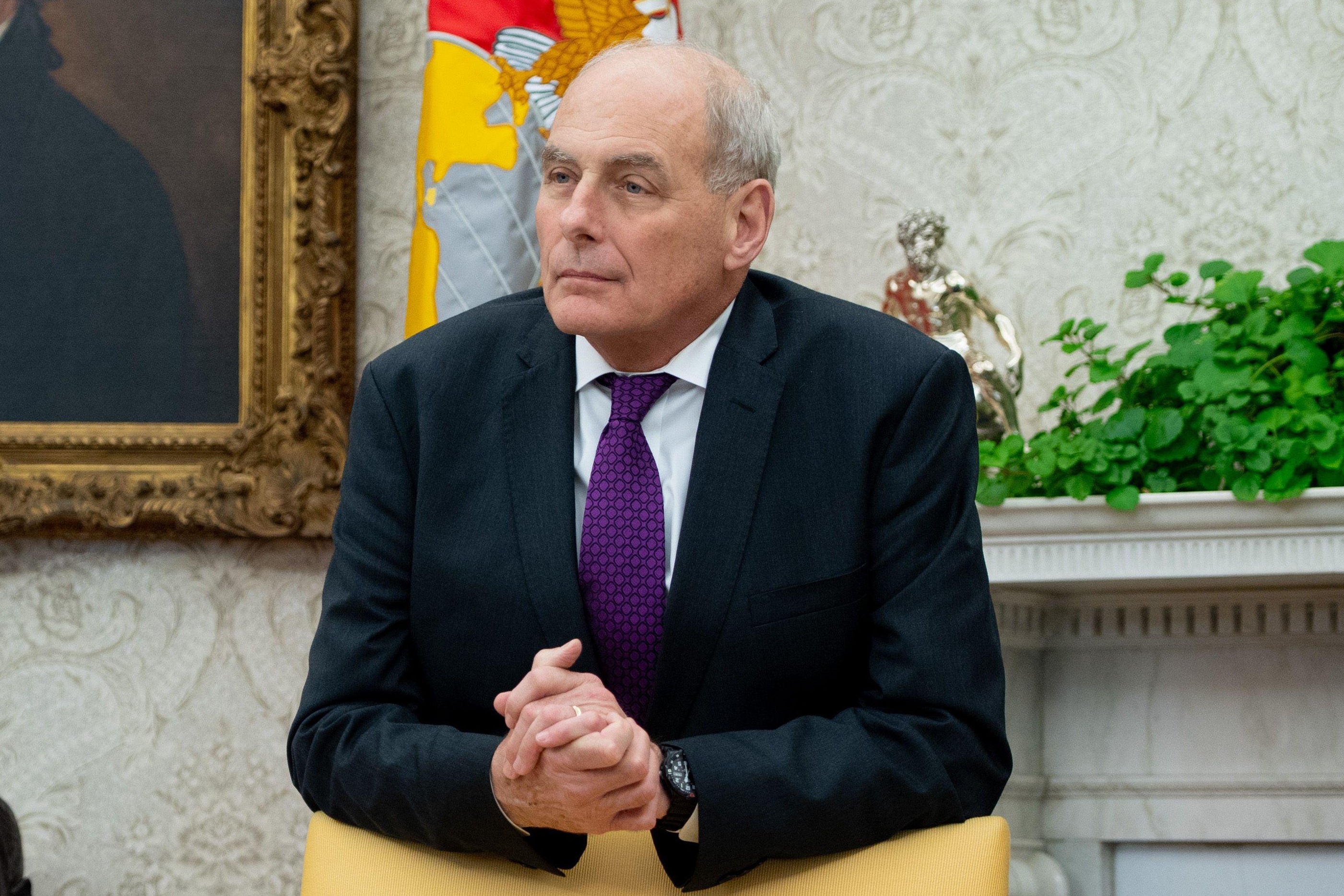The only surprise about John Kelly’s ouster as White House chief of staff, a move that President Trump announced on Saturday, is that it didn’t happen eight-and-a-half months ago.
That was when Trump named John Bolton to be his national security adviser. One of Kelly’s signal achievements, up to then, was keeping Bolton—a Fox News commentator that Trump watched regularly and had wanted to meet face-to-face—out of the Oval Office. Now that Bolton—who was also a bureaucratically savvy former State Department official—would be a few feet away from the commander-in-chief, Kelly’s role as White House gatekeeper and credibility as the administration’s agenda-setter were gravely diminished.
Other moments should have riveted Kelly’s eyes to the exit sign. Early on in Trump’s presidency, Kelly and his fellow former Marine, Secretary of Defense James Mattis, agreed never to be out of the country at the same time, lest Trump sign a disastrous executive order without their consultation—as he did with his first Muslim travel ban. Since that disaster, Trump has brought on board other, marginally more competent aides to help him do what he wants, and Mattis—whom Trump recently described as “sort of a Democrat”—seems weeks away from getting the boot, too.
Meanwhile, no tears should be shed for Gen. Kelly. Yes, he was lauded in the early months of his term as one of the “grown-ups in the room,” the man who not only blocked Bolton but got rid of Steve Bannon and his white-nationalist sidekick, Sebastian Gorka. Kelly also talked a good game on broader issues, particularly immigration. In his confirmation hearing for secretary of homeland security, a job he held before Trump moved him to the White House, Kelly assured senators that he would speak “truth to power”; said that a wall on the Mexican border would not halt drug trafficking; disputed Trump’s description of illegal immigrants as rapists and killers, saying most of them came here for “economic opportunity and to escape violence”; and firmly opposed the idea of detaining them without trial, noting, “I’m pretty committed to the Constitution.”
Yet once installed at DHS, Kelly enforced Trump’s crackdown on undocumented immigrants with gusto, and as chief of staff, he defended the separation of families. His intolerance of foreigners extended well beyond “illegals,” opining in a behind-closed-doors meeting last year that the number of refugees to be let in to the United States should be reduced to “somewhere between zero and one.”
Finally, he adopted—or maybe revealed that he shared—Trump’s contempt for democratic institutions. In a speech at George Washington University in April, Kelly lambasted congressional critics of the crackdown on once-protected DACA children, saying that “they should shut up and support the men and women on the front lines.” At a press conference in August 2017, he took questions only from reporters who knew Gold Star families, saying, “We don’t look down upon those of you that haven’t served,” but “we’re a little bit sorry for you, because you’ll never have experienced the wonderful joy you get in your heart when you do the kinds of things our servicemen and women do.”
When Rep. Frederica Wilson, a Florida Democrat, criticized Trump for his insensitive phone call to a constituent whose husband had been killed in battle, Kelly denounced her as an “empty barrel” and told a story about a self-serving speech she’d given at the dedication of an FBI building—a story that a video of her speech revealed was false. Kelly never corrected the record. When a reporter asked White House spokeswoman Sarah Huckabee Sanders about the contradiction, Sanders said it was “highly inappropriate” to question a four-star general. Kelly never dissociated himself from that absurd statement either—though others did. Another retired four-star general, David Petraeus, said on a weekend talk show, “We in uniform protect the rights of others to criticize us.”
When Kelly was nominated as homeland security secretary, several retired officers said on and off the record that he seemed a perfect fit for the job. They cited his background as commander of U.S. Southern Command (which dealt with drug smuggling and other border issues); his support for civil rights; and his empathy, as the father of a son, a Marine 2nd lieutenant, who died in battle in Afghanistan. (The loss made Kelly—then a two-star general—the highest-ranking U.S. officer to lose a child in the wars we’re still fighting.) Over the past year, though, many of these same officers have expressed disappointment with his lackluster performance as chief of staff and his unseemly kowtowing toward—and endorsement of—Trump’s views and demeanor.
At several moments of his tenure, even through his concessions and compromises, Kelly has been caught on camera wincing or burying his head in his hands while listening to some of Trump’s more outrageous remarks. The question now is how often, behind closed doors, he did the same—maybe next to a stiff drink—while recalling his own.
